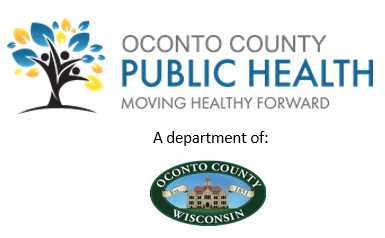DHS Urges Wisconsinites to Protect Themselves Against Respiratory Viruses this Holiday Season
With respiratory viruses such as COVID-19, influenza, and RSV circulating at high levels nationwide, the 2022-2023 respiratory season has the potential to be severe, especially for young children and older adults. The Wisconsin Department of Health Services (DHS) has issued an alert to Wisconsin health care providers(link is external), and urges everyone to get all recommended vaccines, including the updated COVID-19 booster and the flu vaccine, to help prevent and slow the spread of respiratory illnesses.
“Wisconsin hospitals are already seeing an alarming number of hospitalizations due to respiratory illnesses,” said DHS Secretary-designee Karen Timberlake. “It is essential for Wisconsinites to get their updated COVID-19 booster and annual flu vaccine to protect their health, especially with the holiday season right around the corner.”
All Wisconsinites ages 6 months and older can get their COVID-19 and flu vaccines at the same time. Everyone 5 years and older should also get an updated COVID-19 booster when eligible. The updated COVID-19 booster provides increased protection against Omicron variants which cause most of the current COVID-19 cases. Data from the updated DHS COVID-19 Vaccine Dashboard show less than 15% of Wisconsinites have gotten their updated COVID-19 booster. It is especially important for older people, people with chronic health conditions, people who are pregnant, and young children to get vaccinated to prevent severe disease. For more information on current guidance on COVID-19 vaccination for children, visit the DHS website.
In addition to getting all recommended vaccines, Wisconsinites should take additional steps when planning their holiday celebrations because respiratory viruses spread more easily when people are gathered indoors.
- If you are feeling sick, get tested. Talk to a doctor about getting tested for COVID-19, influenza, RSV, or other respiratory viruses. Wisconsinites can still order free COVID-19 rapid tests(link is external) and access testing at many community locations across the state.
- If you’re sick, stay home. Especially if you test positive or have symptoms of COVID-19, flu, or other illnesses(link is external). This helps protect others, especially those who are most vulnerable. Consider connecting virtually or rescheduling activities so you can celebrate safely.
- Check your COVID-19 Community Level for information about the amount of severe illness in your community before any holiday celebration. If your COVID-19 Community Level is high, wear a well-fitting mask or respirator when you are inside public places around others.
- Frequently wash your hands with soap and water to help prevent the spread of all respiratory illnesses and cover coughs and sneezes to avoid spreading germs.
Find more information about COVID-19 testing on the DHS website. If you need assistance accessing other health care or finding a vaccine provider in your community, call 211 or 877-947-2211.
Visit the DHS website for up-to-date information about COVID-19, the flu, and RSV. Additional information about the 2022-2023 respiratory season can be found in the DHS Weekly Respiratory Report.
